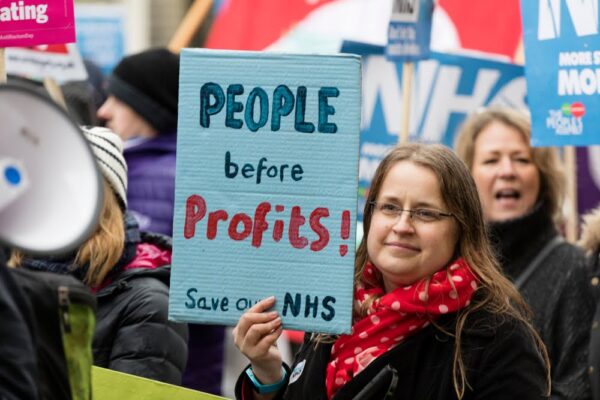As the most vulnerable NHS mental health patients face growing waits for treatment, and the health secretary has announced that new staff ministers announce they want to start talking about a new mental health strategy, it is time to recognise that partnerships with the private sector are no easy route to easing the NHS waiting lists.
Private health companies have a strong foothold in the NHS, established over decades, and market analysts Laing & Buisson estimate that over 30% of NHS mental health hospital capacity is now supplied by the private sector. These firms provide over half the NHS inpatient beds for children and teenagers with mental health problems, and almost all of the secure beds for adults.
The revenue that these companies accrue from NHS contracts has risen steadily in recent years and the biggest providers are now highly dependent upon NHS work as it makes up around 90% of the total market value, with self-pay and private medical insurance fees only accounting for 10%.
Prior to the pandemic the both the NHS and the private sector had failed to respond adequately to rising demand. Within the NHS, inpatient mental health beds have fallen from 18,750 to 18,232 over the last five years. This shortage of hospital beds across the country means that vulnerable patients are being treated out of their local area, away from families, causing distress and slowing their recovery. Alternatively patients are being treated in the community with greater risk.
Full story in The Lowdown, 9 March 2022









